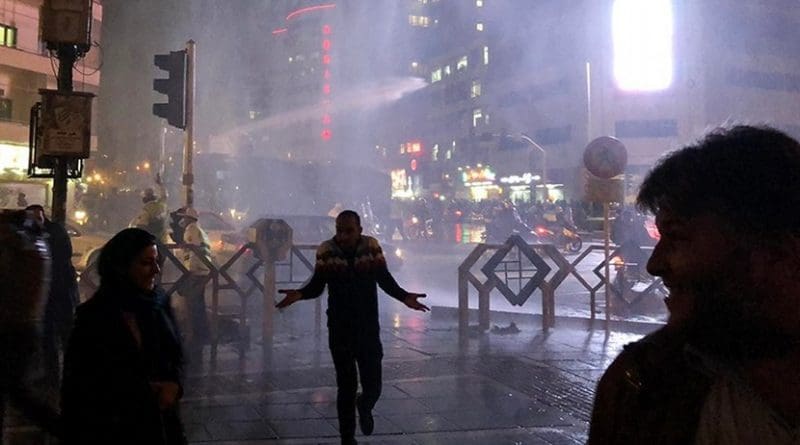The Protests In Iran: A Lot To Worry About – OpEd
By Observer Research Foundation
By Avijit Goel
Early last month, in a surprising departure in street sloganeering in Tehran, the oft too heard “Death to Israel” was replaced with “Death to Palestine”. This provocative sloganeering shockingly started at the capital’s Grand Bazaar, which is regarded as the epitome of conservatism in the country. For a country that prides itself as the leading voice of Shias’ globally, it was quite a rarity to find this public outburst of frustration at the perceived attention to causes outside of Iran.
Israel is anathema for the political establishment in Iran. The vitriol reserved for Israel is rivalled only by their complete disdain for Trump for abandoning the Iran deal (JCPOA) recently. To have your citizenry openly espouse that hatred for Israel is a needless distraction and the narrative needs to shift to their own ailing economy would have created quite the awkward moment for the Iranian political establishment.
In the last six months, Iran’s currency has lost almost 60 percent of its value, with the US dollar now buying around 110,000 rials on the open market. Apart from the currency’s downward spiral to junk value, the Iranian private sector has long been starved of investment, its banking system is crippled by bad loans and record levels of unemployment mean a third of under-30-year-olds are out of work.
At the end of last year, similar economic protests roiled Iran and spread to some 75 cities and towns, becoming the largest demonstrations in the country since its 2009 disputed presidential election. The protests in late December and early January saw at least 25 people killed and nearly 5,000 arrested.
However, those protests largely struck Iran’s provinces as opposed to Tehran itself. The rumour on the street claims that hard-liners (Ayatollah’s faction) likely encouraged the first protest that took place in Mashhad (symbolically signifying a lot as it’s the second most populous city in Iran, and a key centre of Shia religious pilgrimage) to try to weaken President Hassan Rouhani, a despised moderate in the eyes of the conservatives and far more popular leader with the younger generations. And like with protests anywhere in the stifled Arab geographies, the protests took their own life. They spiralled out of control, with people openly criticising both Rouhani and Supreme Leader Ayatollah Ali Khamenei.
For a country that hasn’t seen economic opportunity and global commercial integration for the masses for decades now, it’s not surprising.
The Iranian’s are clearly a very worried lot with the draconian sanction road ahead. The first batch of US sanctions on Iran — which bar Iran from purchasing the US dollar, precious metals, vehicle & aircraft components — are set to snap back into place immediately now. The more crippling sanctions, including those on Iran’s energy sector and the Iranian central bank, will not kick in until the first week of November. Trump hopes that this economic and diplomatic arm-twisting will force Tehran to negotiate a new deal with his administration. The only hope that Iran can cling on to is support from the European Union (EU) and China on reverse pressurising the US to maintain the sanctity of the JCPOA.
The initial signs of support from the EU, however, are very confusing though. The Trump administration has given global firms 180 days of grace period to cease dealing with Iran, or face secondary sanctions. For the sheer terror that the secondary sanctions hold for any global corporation(companies can be penalised and prohibited from using the US financial system), it’s not surprising that French energy giant Total is quitting Iran, despite having invested close to $46 million in developing the South Pars natural gas field in Iranian waters.
This is despite the EU attempting to salvage the JCPOA deal through other channels and trying to bring up a framework to protect EU based organizations invested into Iran.
China has issued encouraging statements for Iran by rejecting any unilateral US decision on the JCPOA and insists that China shall continue investing in Iran (The Chinese state-owned China National Petroleum Corporation (CNPC) is looking into the possibility of replacing French Total in the Persian Gulf Project).
Whatever be the outcome of the EU or Chinese support, it’s unlikely that the Iranian populace has infinite patience in being dealt a raw hand yet again. The protests are a sign of immense worry, the US’s position is as punishing as ever, while the positions of the EU and China are confusing — not a pretty place to be in in these uncertain & incendiary times for Iran.

